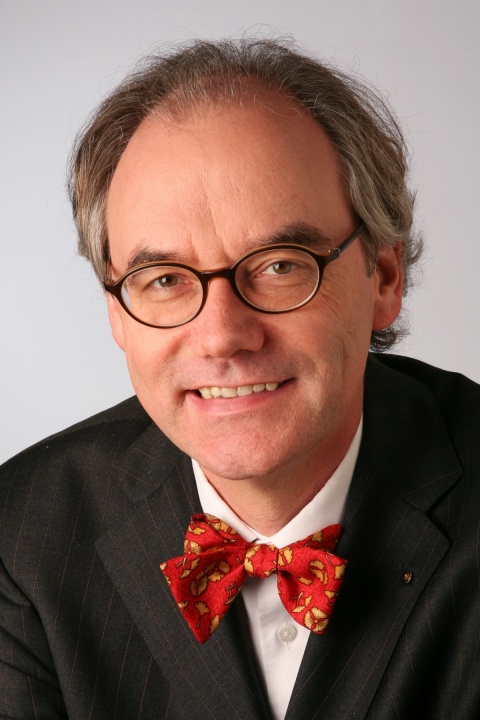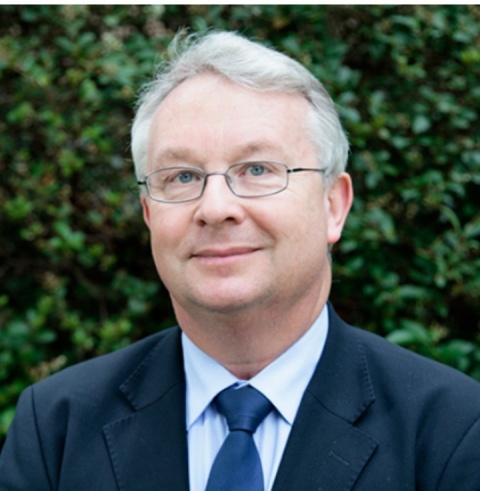Article • Healthcare standards
Brexit: Uncertainty in every question
The British decision to leave the European Union was and still is constantly discussed. Thinking about the consequences leaves more open questions than answers.
Report: Marcel Rasch
‘Unsurprisingly, most informed commentators use the word “delusional” rather a lot,’ says Martin McKee, Professor of European Public Health at London School of Tropical Hygiene and Medicine. At the European Health Forum in Gastein (EHFG) he discussed the current situation with Professor Helmut Brand, president of EHFG, and Jean Monnet, Professor of European Public Health and head of the Department of International Health at Maastricht University. Both agree: In many areas, the NHS depends on EU citizens and also the challenges that now must be faced go much deeper than anyone who voted for Brexit ever thought.

Many and various scenarios have been discussed in recent months. Several steps are already undertaken. How much time might Brexit take?
McKee: ‘Much longer than two years to be concluded, if Brexit ever is. The two years specified in Article 50 only cover agreeing how the UK might exit. We should recall that Greenland, with only 50,000 people and one major issue – fishing – to discuss, took three years.’
Brand: ‘I’d like to add that the European Healthcare System will not be very much affected by Brexit, but the UK will be. There are fewer British medics working in the EU than EU medics working in the UK. These, however, will be affected. I know a lot of post-graduates who have problems with the renewal of their expiring contracts and who do not know whether they can stay in the UK, or not. I recognise a big uncertainty, both on the official side and in the Healthcare System, at the moment.’
What is the next step and challenge?
McKee: ‘There are two major challenges facing the world. The first, and most urgent, is concerted agreement on climate change. We now do have the Paris Agreement on how to proceed. The challenge is to make it happen. The second is to develop concerted plans to implement the Sustainable Development Goals (SDGs). These provide a solid basis for progress for our planet, but will require the world’s nations to match their words with resources. In the rest of the world, there are many important issues to resolve, among them the implementation of the SDGs. They include the need to achieve peace in the Middle East, which would do much to stem the flow of refugees that is placing so much pressure on countries neighbouring Iraq and Syria and, to a much lesser extent, Europe, as well as defusing tensions in the South China Sea.’
In the UK, government is largely in a state of paralysis
Prof. Martin McKee
Everyone is awaiting outcomes relating to the results of the US Presidential and senate and house elections, McKee added.
‘In the UK, government is largely in a state of paralysis, with most departments being urged to implement Brexit, but no idea about either what it means, except that “Brexit means Brexit”, or how to begin. We can anticipate many years of policy confusion there. One thing is clear: The UK will struggle to play any significant role in these global debates, which is a pity.’
Brand: ‘I totally agree. Momentarily, we obviously live in times of so called Post-Truth-Politics, where everyone can spread untruths in politics online via social media and offline, and people do believe it. The best example is the claim about these £350 million that were transferred to the EU on a weekly basis and which was the very first thing politicians backed up on directly after Brexit.’

After Brexit is completely concluded, what will happen to all the physicians working abroad in common projects at universities and clinics?
McKee: ‘First, who can tell whether Brexit ever will be concluded? Second, this is a very good point. Universities in the UK were unanimously opposed to Brexit, recognising that the consequences would be devastating. The same is true for the NHS, which depends on EU citizens in so many areas.
‘Some British politicians talk about giving EU citizens already here the right to remain, but that simply reveals their ignorance of the issues involved. These workers have many rights, as EU citizens, including entitlement to healthcare should they retire to other member states after retirement or when they travel home while employed in the UK, as well as portability of pensions etc. I see no evidence that these issues are being addressed.’
Brand: ‘The most important thing is that there exists a date for the exit. Now, the European Commission has to deal with the question of where the European Institutions will move and what to do next. Several good people are already leaving, returning to their home countries.
‘I personally know neurologists who are concerned about the fact that they might have to leave Horizon 2020, which is not a question of financials in first place, but a question of the existing and established networks. Big projects cannot be stemmed solely. If Britain leaves such projects because of Brexit an important partner will be lost. This is definitely something both sides will suffer from.’
I think that an important question for the Healthcare Sector will be how to deal with standards
Prof. Helmut Brand
What’s next?
McKee: ‘It really is impossible to predict. The Scottish First Minister was asked, after she met Theresa May, whether she was undermining the government’s plans. She pointed out that there was nothing to undermine.
‘I can only conclude that the British government is lost, with no idea where it is, or where it wants to go. There are many options, from no Brexit, through soft Brexit, and hard Brexit. All are, for one reason or another, “impossible”. The challenge is to find the least impossible solution, which may just be remaining a member of the EU.’
Brand: ‘I think that an important question for the Healthcare Sector will be how to deal with standards. We do have standards for drug approvals, in medical technology, regulations for treatment and therapies, there exists a joined procurement for ordering vaccines, and all these are European standards.
‘The question is, what will Britain do? Will it stay with these established standards or, for example, draw near the USA. The second could lead to a lot of problems. These are questions that have to be faced.’
Profiles:
Helmut Brand is Jean Monnet Professor of European Public Health and head of the Department of International Health at Maastricht University, the Netherlands. The professor studied Medicine in Düsseldorf and Zürich and holds a master’s degree in Community Medicine from the London School of Hygiene and Tropical Medicine and London School of Economics. He is president of the European Health Forum Gastein (EHFG) and co-chair of the European Alliance for Personalised Medicine (EAPM).
Professor Martin McKee qualified in medicine in Belfast, Northern Ireland, with subsequent training in internal medicine and public health. As Professor of European Public Health at the London School of Hygiene and Tropical Medicine he was founding director of the European Centre on Health of Societies in Transition. He is author of over 900 scientific papers and 44 books and is Fellow of the Royal Colleges of Physicians of London, Edinburgh, and Ireland and the UK Faculty of Public Health and a former chair of the UK Society for Social Medicine.
06.01.2017





